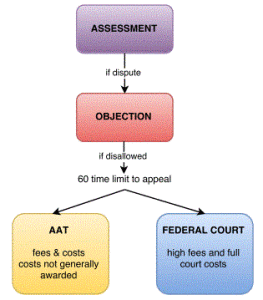A tax deduction is available for costs of preparing and lodging an income tax objection under section 25-5 of the Income Tax Assessment Act 1997 (ITAA 1997). Section 25-5 provides a deduction for taxpayers for the costs of managing their tax affairs.
Further, fees for taking income tax advice, including obtaining a position statement, are deductible where the advice is provided by a “recognised tax adviser”: paragraph 25-5(2)(e). A recognised tax adviser is either a registered tax agent or a legal practitioner.
Legal professional privilege
A further advantage of taking income tax advice from a legal practitioner is that written advice attracts client legal privilege. Unless the taxpayer waives the privilege, the privilege protects the advice from compulsory disclosure to the Commissioner of Taxation or to a tribunal or court.
Deduction for costs relating to tax affairs of a capital nature not excluded
If the expenditure is not of a capital nature then it may also be allowable as a deduction under sub-section 8(1) of the ITAA 1997. If the expenditure relates to tax affairs of a capital nature then that has no impact on the deduction available under section 25-5: sub-section 25-5(4).

